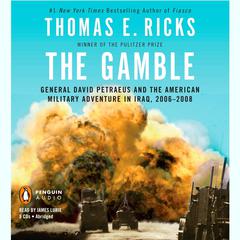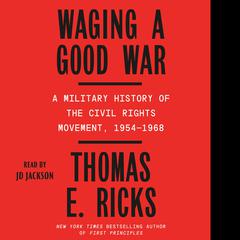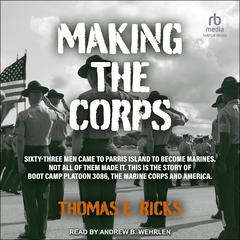 Play Audiobook Sample
Play Audiobook Sample
First Principles: What America's Founders Learned from the Greeks and Romans and How That Shaped Our Country Audiobook
 Play Audiobook Sample
Play Audiobook Sample
Quick Stats About this Audiobook
Total Audiobook Chapters:
Longest Chapter Length:
Shortest Chapter Length:
Average Chapter Length:
Audiobooks by this Author:
Publisher Description
New York Times Bestseller
Editors' Choice —New York Times Book Review
""Ricks knocks it out of the park with this jewel of a book. On every page I learned something new. Read it every night if you want to restore your faith in our country."" —James Mattis, General, U.S. Marines (ret.) & 26th Secretary of Defense
The Pulitzer Prize-winning journalist and #1 New York Times bestselling author offers a revelatory new book about the founding fathers, examining their educations and, in particular, their devotion to the ancient Greek and Roman classics—and how that influence would shape their ideals and the new American nation.
On the morning after the 2016 presidential election, Thomas Ricks awoke with a few questions on his mind: What kind of nation did we now have? Is it what was designed or intended by the nation’s founders? Trying to get as close to the source as he could, Ricks decided to go back and read the philosophy and literature that shaped the founders’ thinking, and the letters they wrote to each other debating these crucial works—among them the Iliad, Plutarch’s Lives, and the works of Xenophon, Epicurus, Aristotle, Cato, and Cicero. For though much attention has been paid the influence of English political philosophers, like John Locke, closer to their own era, the founders were far more immersed in the literature of the ancient world.
The first four American presidents came to their classical knowledge differently. Washington absorbed it mainly from the elite culture of his day; Adams from the laws and rhetoric of Rome; Jefferson immersed himself in classical philosophy, especially Epicureanism; and Madison, both a groundbreaking researcher and a deft politician, spent years studying the ancient world like a political scientist. Each of their experiences, and distinctive learning, played an essential role in the formation of the United States. In examining how and what they studied, looking at them in the unusual light of the classical world, Ricks is able to draw arresting and fresh portraits of men we thought we knew.
First Principles follows these four members of the Revolutionary generation from their youths to their adult lives, as they grappled with questions of independence, and forming and keeping a new nation. In doing so, Ricks interprets not only the effect of the ancient world on each man, and how that shaped our constitution and government, but offers startling new insights into these legendary leaders.
Download and start listening now!
“Knowing the source of the values they claimed to espouse and the historical comparisons they took as obvious, we can know more about the founders themselves — and perhaps something of how the country we now have measures up to the one they envisioned.”
— Washington Post
Quotes
-
“[An] extraordinarily timely book.”
— Wall Street Journal -
“Ricks knocks it out of the park with this jewel of a book. On every page I learned something new. Read it every night if you want to restore your faith in our country.”
— James Mattis, general, US Marines (ret.) and 26th Secretary of Defense -
“Ricks knows his subject well, and, equally important, he writes about it lucidly.”
— Gordon Wood, professor at Brown University and author of The Radicalism of the American Revolution -
“Testifies eloquently to the value of historical understanding in these troubled times… Ricks offers us a timely reminder of what the first four, nation-making presidents could imagine and did struggle to achieve.”
— Peter S. Onuf, Thomas Jefferson Professor of History, emeritus, University of Virginia, coauthor of Most Blessed of the Patriarchs -
“Fascinating and erudite.”
— Annette Gordon-Reed, Pulitzer Prize-winning author
Awards
-
New York Times bestseller
-
A #1 Amazon bestseller
-
New York Times Book Review Editor’s Choice
First Principles Listener Reviews
Be the first to write a review about this audiobook!
About Thomas E. Ricks
Thomas E. Ricks, New York Times bestselling author, is an adviser on national security at the New America Foundation, where he participates in its “Future of War” project. He was previously a fellow at the Center for a New American Security and is a contributing editor of Foreign Policy magazine, for which he writes the prizewinning blog The Best Defense. A member of two Pulitzer Prize-winning teams, he covered US military activities in Somalia, Haiti, Korea, Bosnia, Kosovo, Macedonia, Kuwait, Turkey, Afghanistan, and Iraq. He is the author of several books, including The Generals, The Gamble, and the number one New York Times bestseller Fiasco, which was a finalist for the Pulitzer Prize.































